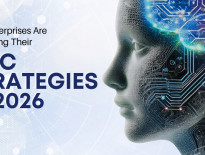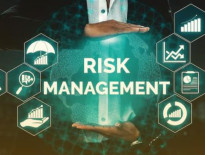
Global Capability Centers (GCCs) have evolved from mere cost-saving outposts to highly sophisticated hubs driving innovation, digital transformation, and competitive advantage for multinational corporations (MNCs). As we venture into the next decade, the GCC model stands at the crossroads of transformation, fuelled by rapidly advancing technologies, dynamic global business ecosystems, and heightened geopolitical uncertainties. Business leaders must rethink their approach to leverage GCCs not just for operational efficiency, but as strategic engines of growth, capability building, and value creation. This playbook provides a comprehensive, actionable roadmap for business leaders to navigate these complexities and unlock the full potential of GCCs. The strategies outlined herein are rooted in industry trends, technical innovation, and global economic shifts, designed to position GCCs as pivotal players in shaping business growth in the next decade. The traditional narrative of GCCs as cost-saving entities is rapidly evolving. The strategic imperative for business leaders is to reposition GCCs from transactional cost centers to value-driven hubs that align directly with the enterprise’s overarching goals. Technical Insights: Digital transformation is no longer optional—it is the bedrock upon which the future of GCCs must be built. Over the next decade, GCCs must lead the charge in adopting cutting-edge digital technologies that drive process efficiency, innovation, and scalability. Technical Insights: As the demand for highly skilled digital workers surges, GCCs must focus on building a resilient talent strategy that leverages the unique demographic advantages of regions like India, Eastern Europe, and Latin America. Technical Insights: As GCCs expand their scope into more complex, high-value operations, ensuring data security, regulatory compliance, and cybersecurity is critical. The next decade will see an increased emphasis on building resilient GCC operations capable of safeguarding intellectual property and sensitive data. Technical Insights: Geopolitical tensions, regulatory shifts, and global economic volatility necessitate a robust risk management framework within GCCs. Business continuity and operational resilience must be embedded into the core strategic planning of GCCs. Technical Insights: The increasing emphasis on Environmental, Social, and Governance (ESG) factors requires GCCs to play an active role in driving sustainability initiatives for the enterprise. Technical Insights: Conclusion: The Future of GCCs The next decade represents a critical juncture for GCCs as they transition from cost-focused support functions to value-generating strategic assets. By aligning their operations with enterprise growth strategies, embracing digital transformation, and prioritizing cybersecurity, sustainability, and geopolitical resilience, GCCs can drive unprecedented growth for MNCs. Leaders who proactively implement these strategies will position their GCCs at the forefront of global business, spearheading innovation, efficiency, and resilience in an increasingly complex world.
Introduction: The Evolution of Global Capability Centers
Aligning GCCs with Enterprise Strategy: Beyond Cost Arbitrage
The Role of Digital Transformation in Scaling GCC Operations
Leveraging Talent and Skills in GCCs: The New War for Talent
Cybersecurity and Compliance: Building Resilience in GCCs
Geopolitical Risk Management and Global Business Continuity
ESG and Sustainability: A Strategic Imperative for GCCs
Hey, like this? Why not share it with a buddy?
Related Posts
Recent Blog / Post
- Pharma GCC Setup Services in India: Strategic Considerations for CXOs January 9, 2026
- Why Enterprises Are Rethinking Their GCC Strategies in 2026 January 8, 2026
- Why Most Enterprise Expansion Strategies Fall Short of Projections, And How a GCC Enabler Can Bridge the Gap January 7, 2026
- India’s GCC Ecosystem: Why the World’s Biggest Companies Are Betting Their Future on it January 3, 2026
- Healthcare GCCs in India: Where the World’s Pharmaceutical Innovation Actually Happens January 2, 2026
- Circular Economy Models and Their Relevance to Manufacturing GCCs December 30, 2025
- GCCs in Agritech: Digitizing Global Food Security December 29, 2025
- Renewable Energy GCCs: Accelerating Global Green-Tech Development December 29, 2025
- Cyber Resilience 2030: Multi-Layer Security Architecture for GCCs December 26, 2025
- Building an Integrated Risk Management Framework for Multi-Region GCCs December 26, 2025
- The Ethics of Automation: How GCCs Maintain Human Oversight in AI Workflows December 25, 2025
- Future of HR in GCCs: Data-Led, Skills-Based, and GenAI-Driven December 25, 2025
- The Proposal to Standardize India’s GCCs for Unshakeable Global Leadership December 24, 2025
- Global Capability Centers: A Strategic Growth Model for B2B Enterprises December 24, 2025
- AI Ethics & Compliance Mandates for GCC Operations in 2025 December 23, 2025















